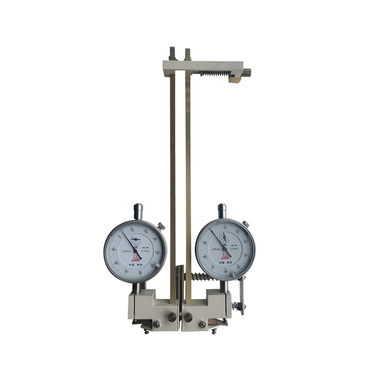Tensile Testing Equipment for Evaluating Material Strength and Performance in Engineering Applications
Understanding Tensile Testing Machines An Essential Tool for Material Analysis
Tensile testing machines play a crucial role in the field of material science and engineering. They are specifically designed to assess the mechanical properties of materials by subjecting them to tensile (stretching) forces until they fail. This process is not only vital for understanding material behavior under stress but also has far-reaching implications across various industries, including aerospace, automotive, construction, and manufacturing.
At its core, a tensile testing machine operates by applying a controlled load to a material specimen. The machine consists of several components, including the loading frame, an electronic measurement system, and grips to hold the material securely. When a sample, usually in the form of a standardized dog-bone shape, is placed in the grips, the machine gradually applies a tensile force until the specimen breaks. During this process, the machine continuously measures key parameters such as stress, strain, and elongation.
Understanding Tensile Testing Machines An Essential Tool for Material Analysis
Tensile tests also yield important values such as yield strength, which indicates the stress at which a material begins to deform plastically, and the elongation at break, which measures the material’s ductility. These properties are critical for engineers when selecting materials for specific applications, as they dictate how a material will behave under working conditions.
tensile tests machine

The significance of tensile testing machines extends beyond basic material characterization. They are integral to quality control processes, ensuring that materials meet specified standards and performance criteria. For example, in the aerospace industry, where safety is paramount, tensile tests help verify the reliability of materials used in aircraft construction. Similarly, in the automotive sector, manufacturers rely on these tests to ensure that components can withstand the stresses encountered during operation.
Advancements in technology have also led to the development of more sophisticated tensile testing machines. Modern machines are equipped with digital interfaces, data acquisition systems, and software that enable automated testing and detailed analysis of results. These features enhance accuracy, reduce human error, and streamline the testing process, making it more efficient and user-friendly.
In addition to traditional metallic materials, tensile testing machines are increasingly used to analyze polymers, composites, and even biomaterials. This versatility is essential as industries continue to innovate and explore new materials with unique properties. For example, in the field of biomedicine, researchers use tensile testing to evaluate the mechanical performance of implants and scaffolds, ensuring they are safe and effective for use in the human body.
In conclusion, tensile testing machines are invaluable tools for the analysis of material properties. By providing critical data on how materials respond to tensile forces, these machines facilitate informed decisions in material selection and design, driving innovation across various engineering disciplines. As technology continues to evolve, the role of tensile testing machines will only become more prominent, further enhancing our understanding of materials and their applications in the real world.
-
Why the Conductor Resistance Constant Temperature Measurement Machine Redefines Precision
NewsJun.20,2025
-
Reliable Testing Starts Here: Why the High Insulation Resistance Measuring Instrument Is a Must-Have
NewsJun.20,2025
-
Flexible Cable Flexing Test Equipment: The Precision Standard for Cable Durability and Performance Testing
NewsJun.20,2025
-
Digital Measurement Projector: Precision Visualization for Modern Manufacturing
NewsJun.20,2025
-
Computer Control Electronic Tensile Tester: Precision and Power for the Modern Metal Industry
NewsJun.20,2025
-
Cable Spark Tester: Your Ultimate Insulation Assurance for Wire and Cable Testing
NewsJun.20,2025
 Copyright © 2025 Hebei Fangyuan Instrument & Equipment Co.,Ltd. All Rights Reserved. Sitemap | Privacy Policy
Copyright © 2025 Hebei Fangyuan Instrument & Equipment Co.,Ltd. All Rights Reserved. Sitemap | Privacy Policy
